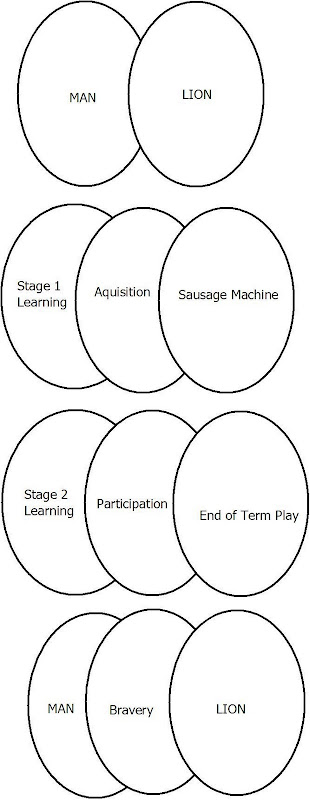Habits are hard to change.
11 years on I still feel that by putting content here I will be able to find it next week, next year and my AI doppleganger will be able to feed off it to and give the impression that I am still posting content at the age of 105 when in fact I will be totally occupied with my role as the 'Bastard Duke Norm of Williamdy' down the road at Battle to recall the conquest of these islands by the quas-civilised third generation Vikings from France.
I'm engrossed in the UCL FutureLearn Diana Laurillard Blended Learnning MOOC. I need this stuff because I've eleted to work on the front line. I'd like to feel like i'm the urologic surgeon at Guys hospital who is working in A&E support because of Covid - I am the 'bookman' wannabe academic who has taken his head out of his books to teach.
Anyway, believe me. I at least will run around like a Medusa eyeing down anything that might help. This does:
- Learning through acquisition > listening to the teacher, watching a video, demo, reading a book, a website.
- Learning through inquiry > going to the teacher, library or internet to find something out.
And the more active learning processes.
- Learning through discussion > asking questions or answering questions, exchanging ideas. Listening, responding, articulating, arguing …
- Learning through practice > teachers set up task goals, to generate an action, interpret feedback.
- Learning through collaboration > working together on a project to produce a shared output.
- Learning through production > creating something for the teacher to evaluate.
However, what I do in an observed or demonstration class will surely differ to what I may deliver over a week or term? And differ again when it is done online? I have seen and taken part in excellent online asynchronous provision - I have also suffered awful classes too - maybe even delivered some myself.
Going anywhere? Not yet, never entirely.
I come here to get down a first draft which rarely gets reworked elswere - so at least I've captured it. I do keep a weekly review though, a single doc where I chuck in everything that week, which for me is usally just four days, but with evenings (and nights) thrown in can equate to a heck of a lot of input.
